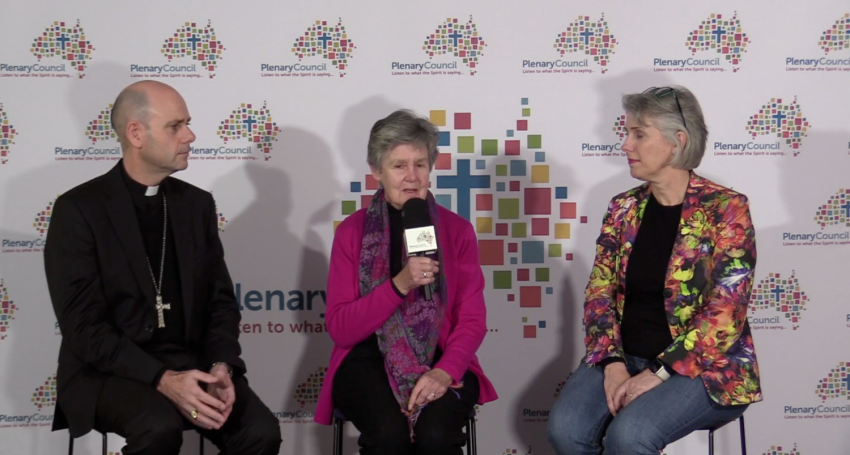Council passes motions on integral ecology, governance
National
Plenary Council Members have passed motions relating to Church governance and integral ecology during day four of deliberations at the final assembly in Sydney.

Among the reforms backed were a call for the establishment of diocesan pastoral councils across the country, the hosting of diocesan synods within five years of the conclusion of the Fifth Plenary Council of Australia and the undertaking of broad consultation about the creation of a national synodal body for Church collaboration.
Those were captured in the four motions that emerged from Part 7 of the Council’s Motions and Amendments document entitled “At the Service of Communion, Participation and Mission: Governance”.
Advertisement
All four motions achieved a qualified majority in both the consultative and deliberative votes cast on Thursday, and so were passed.
Members also voted on two motions in Part 8, Integral Ecology for the Sake of Our Common Home, with those two votes achieving a qualified majority in both the consultative and deliberative votes, therefore passing.
The Council said ecological conversion is “both personal and communal”, and that there was “urgent need for action” from Catholic entities through the development of, or alignment with, Laudato Si’ Action Plans inspired by Pope Francis’ encyclical letter of the same name.
The Council called for the promotion of initiatives in Church and society that “promote and defend human life from conception to natural death, especially those who are most vulnerable”.
Speaking at the daily media briefing, Sr Anne Boyd csb said if dioceses, parishes, schools and other organisations all worked through the Laudato Si’ seven year process, “we will enter into an ecological conversion which is basically understanding that the human is not the centre of this planet”.
“There’s a mutuality there that if we really enter into the call to understand integral ecology we find ourselves in the community of life rather than above the community of life,” she said.
“We would change our behaviour…it’s a very big ask but every little bit helps.”
“If we really addressed all the elements of the Laudato Si’ platform… the planet would be rejoicing.”
Bishop Michael Kennedy told the media briefing that the approach to governance being considered by the Plenary Council , much of which was already being implemented in some places, might not happen exactly the same way in more remote dioceses with limited resources.
“You have to be very flexible,” he said. “The dioceses differ greatly from place to place and the principles have to be applied in the local context.”
Francine Pirola, from Sydney Archdiocese, said she had initially been disappointed by the framework document in that it didn’t go far enough in terms of governance but she now believed it was “better” because it allowed for creativity and flexibility to meet diverse needs.
Advertisement
In an address to Plenary Council members on the them of ‘At the Service of Communion, Participation and Mission: Governance”, Sr Moya Hanlen FDNSC spoke about falling Mass attendances, especially in the wake of the COVID-19 pandemic.
“Less than 12% of Catholics regularly attend Mass,” she said, adding that many had “chosen to remain with Mass online.”
Sr Hanlen said governance in the Church was different from standard models of governance, describing it as a “ministry of service” that facilitates communion, participation and mission.
Seeing governance as a ministry of service was important, she said, because Jesus himself was mission.
“In a very real sense, Jesus did not have a mission – he was himself mission: he was the Heart of God on earth.”
She pointed to the existence of Diocesan pastoral councils as a means of enabling this vision, noting that five dioceses in Australia have one.
Details on the final wording of motions and the voting outcomes can be found on the Motions and Voting page of the Plenary Council website.
Follow the second assembly at: https://plenarycouncil.catholic.org.au/








Comments
Show comments Hide comments